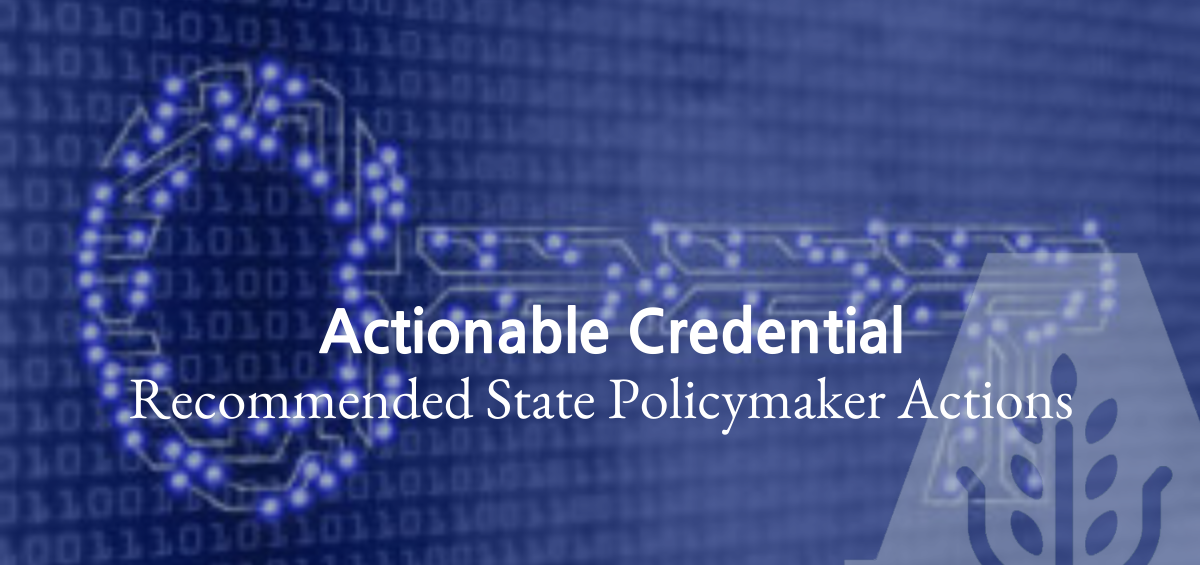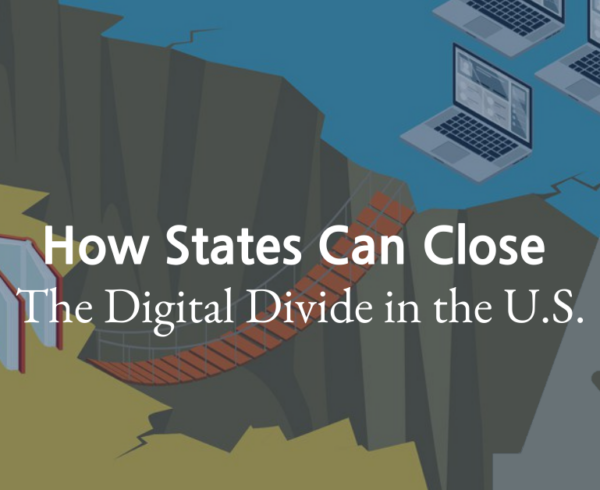State policy leaders play a vital role in advancing credential transparency as a critical part of their larger economic and education strategy. Many organizations are encouraging state policy leaders to integrate transparency with efforts aimed at quality, attainment goals, equity and affordability.
State policymakers can support quality assurance of credentials through the following actions:
- Prioritize and coordinate efforts to assure credential transparency and quality.
- Colorado has leveraged their P-20 Data system to create a “data trust” which makes it more efficient to link data from disparate data collections to produce more actionable information. As part of this effort, credentials that are offered in Colorado will be available on the Credential Registry so state policymakers and opportunity seekers can make more informed decisions. Through work with the National Skill Coalition, Colorado has adopted criteria to define quality non-degree credentials which increase the usefulness of the information reported on the Credential Registry. Colorado is also piloting the EQOS standardized definitions of outcomes for credential providers to help develop potential uniform results metrics which facilitates more reliability and compatibility among credentials.
- Conduct a scan of existing quality frameworks and processes to determine which agencies have the authority and responsibility for defining credential quality and value. Encourage the coordination across definitions and frameworks and if feasible, the adoption of one set of criteria across education and training sectors within the state for consistency and comparability. States with a robust P20W governance structure are poised to foster this alignment and coordination.
- Florida passed HB 1507 in April 2021, which facilitates a cross-sector approach to defining and identifying credentials of value. The legislation requires CareerSource, the state workforce board, to appoint a Credentials Review Committee (CRC) comprised of leaders from state and local K-12 and postsecondary education, local workforce boards, industry association, economic development leaders, and others to define and identify high-value degree and non-degree credentials for approval by the State Board of Education and develop a corresponding Master Credentials List. ESG is working with key cross-sector stakeholders in Florida to undertake preliminary work to understand promising practices to define and identify non-degree credentials that lead learners to good jobs.
- Require that outcomes are published on public open source portals (such as the Credential Registry).
- Leaders in Alabama are intentionally linking credential quality and transparency efforts with the launch of the Alabama Compendium of Valuable Credentials. This list of high-value credentials aligned with regional and state career pathways are made available in a common language by being mapped to the CTDL and allow for a greater connection of systems and tools to advance the success of all Alabamians.
- Support the creation of tools, services and systems with robust navigation and guidance capabilities that incorporate quality assurance measures so users have access to consistent information when setting their education and employment goals.
- New Jersey is focused on eliminating barriers and clearing up confusion about quality credentials by creating a single definition of quality regardless of type–with the aspirational goal of incorporating the universe of degree programs–and by describing credentials through the CTDL and adding them to the Credential Registry.
- Compel education and training leaders to define high-quality credentials as those that meet rigorous labor market skill and demand thresholds; lead to a job with a family-sustaining wage; and offer an opportunity to “stack” to additional credentials and degrees.
- The Louisiana Board of Regents led a cross-sector team–representing workforce, economic development, secondary, higher education and community college leadership–to approve a quality credentials of value policy to classify which non-academic credentials provide value in the marketplace and lead to strong opportunities and good wages. These credentials of value will be counted towards the state’s attainment goal.
If you would like more information regarding the contents of this brief, the overall State Policy Partnership, or about Credential Transparency, then please contact Scott Cheney, CEO of Credential Engine, at scheney@credentialengine.org.













